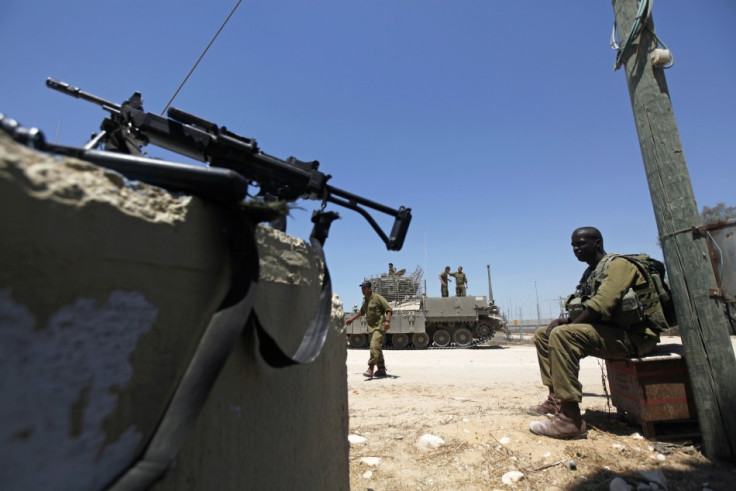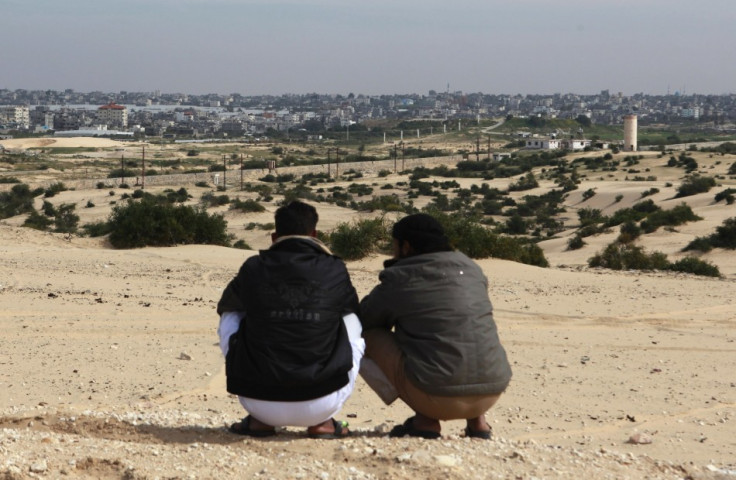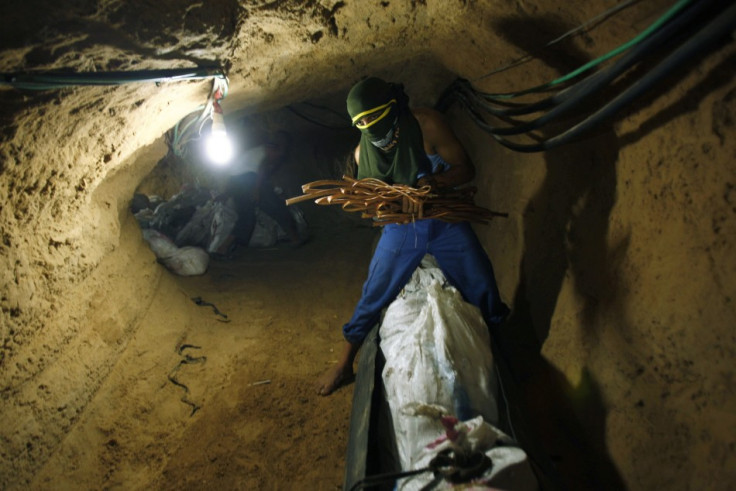Sinai Unrest: What Consequences for Israel, Egypt and Gaza? [ANALYSIS]
A lethal attack on Egyptian border guards and retaliatory airstrikes in Sinai have put this barren peninsula on the map. IBTimes UK investigates

After 16 Egyptian border guards were killed in Sinai, Egypt has conducted a series of airstrikes near the border with Israel and raids on nearby villages as part of a crackdown on Islamic militants.
The town of Sheikh Zuwaid, 10km (6 miles) from the Palestinian-ruled Gaza Strip, was attacked by the Egyptian air force and clashes with gunmen were reported in several checkpoints in the north of Sinai, a vast and largely uninhabited desert peninsula.
Israel welcomed the Egyptian security sweep and closure of the Rafah border and the moves are likely to unnerve Hamas, the Palestinian Islamist movement ruling the Gaza Strip. It had hoped that the rise of the Muslim Brotherhood would mark a shift in Egypt's position vis-a-vis Israel.
IBTimes UK takes a closer look at the troubled Sinai region.
The Attack
A group of more than 30 gunmen broke into an Egyptian military base in Rafah and killed 16 Egyptian border guards and stole a pick-up truck and an armoured vehicle.
They drove off towards Israel although the pick-up truck exploded before reaching the target.
The second vehicle was stopped by Israeli security who killed all seven aboard. Most of them were heavily armed and wore suicide belts.
Were Bedouins involved?
Israel suspects local Bedouin were behind the attack but does not rule out the possibility of Palestinian involvement.
Yaakov Katz, defence analyst for the Jerusalem Post, told the Britain Israel Communications and Research Centre the chances of groups such as Hamas or Islamic Jihad being behind the move were slim. Israeli authorities targeted a terrorist cell inside Gaza a few days before the incident but the operation did not meet a response from militants - proving they were not interested in escalating hostilities at the moment, he added.
The Hamas prime minister of Gaza, Ismail Haniyeh, said there was no evidence Gazans were involved.
Ihab al-Ghussein, spokesman for the Hamas-run interior ministry, told AFP: "Gaza had nothing to do with the attack and no one from Gaza sneaked out through the tunnels."
Splinter groups from the Gaza Strip disillusioned with Hamas could be a third possibility.

Marginalisation of the Bedouin:
Commentators say the proliferation of Salafi Jihadists in Sinai has increased after the Egyptian revolution. But Salafi input in the region was visible as early as the 1980s.
The Bedouins have long complained about the Egyptian government's lack of attention. Although former president Anwar Sadat started a long-term development programme aimed at improving development in Sinai by 2018, funding was cut off by 1998. Most of the money poured into the area focused into developing the tourist industry in south Sinai and the Red Sea coast. Bedouins did not benefit from the new jobs as most were given to outsiders.
Left on the margin of Egyptian society, the Bedouin community remained under-developed and more and more disenfranchised.
Israel's blockade of Gaza in 2006 and the Operation Cast Lead air strikes in 2008 threw up lucrative new financial opportunities for the black market as demand for smuggled good in the coastal enclave rose dramatically. This enhanced cooperation between the various Bedouin tribes and generated more weapons. The black market trade in Sinai is estimated to be worth hundreds of millions of dollars per year.
Egypt's response:
Provisions in the 1979 Egypt-Israel peace treaty demilitarised the peninsula. Egypt is allowed a police presence only along the border.
After a terrorist attack launched from inside Sinai in August 2011, Israel agreed to an Egyptian request for greater troop deployment in the region. Operation Eagle was launched and more than 2,500 troops and 250 armoured cars were sent to key locations.
Egypt's recent airstrikes, the first in the area since the 1973 war with Israel, reportedly killed up to 20 militants.
Egypt also said militants had come through tunnels from Gaza and has started sealing them off. Egyptians authorities will also push for negotiations with Israel to increase the number of Egyptian troops along the border.
Despite fears that the rise of the Muslim Brotherhood would lead to a major shift in Egypt's attitude to Israel the the two countries appear to be willing to cooperate.

Impact on Gaza:
Egypt's move to seal the tunnels linking Gaza's southern border with the country will unsettle Hamas as well as thousands of people who directly benefit from the underground passages.
All sorts of produce make their way through the tunnels daily, ranging from food to construction materials. Some analysts estimate that revenues from smuggled goods add up to half a billion dollars a year.
Analysts have warned that even a week-long closure of the tunnels would have serious consequences on the inhabitants of the Gaza Strip and increase tensions.
© Copyright IBTimes 2024. All rights reserved.





